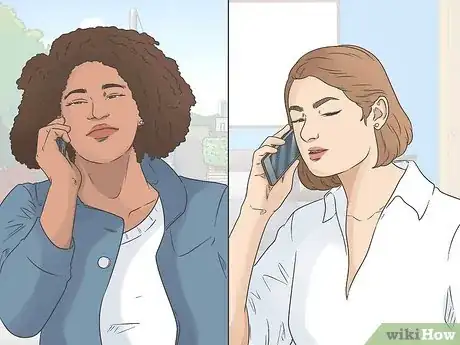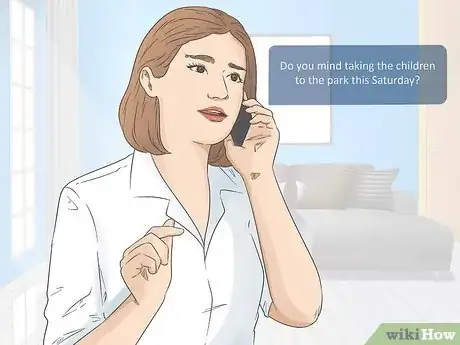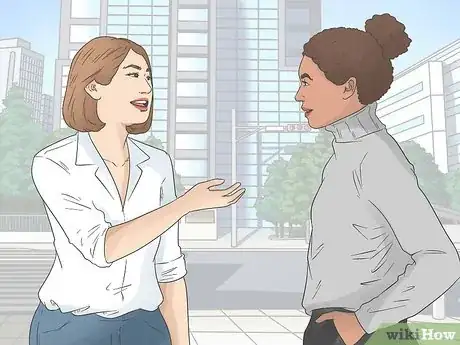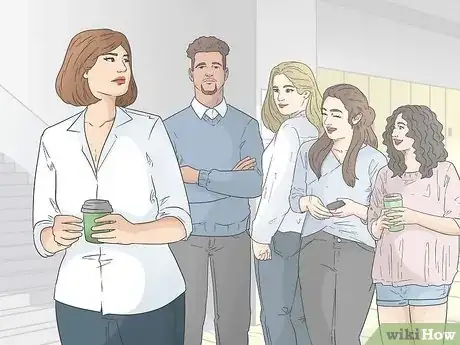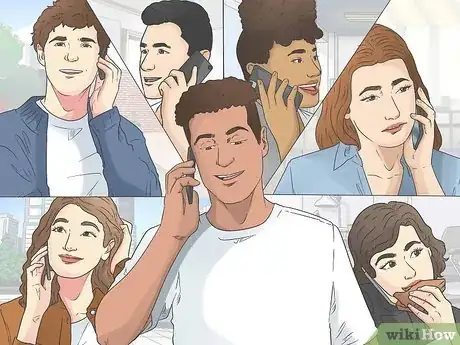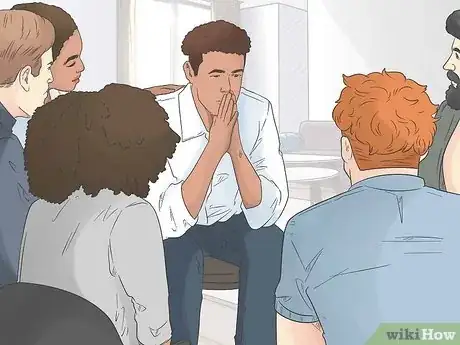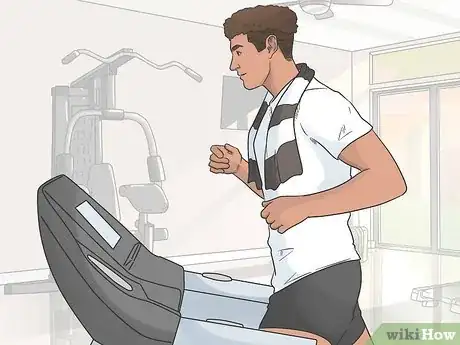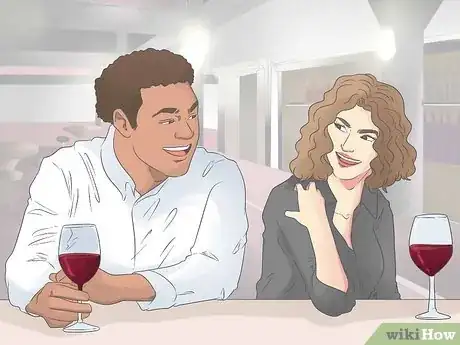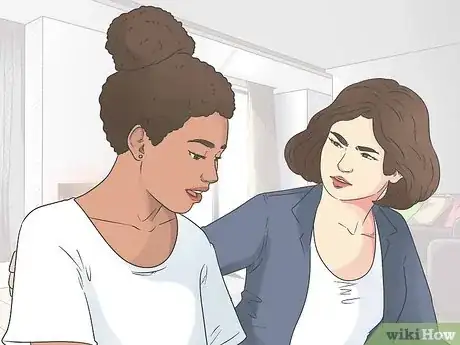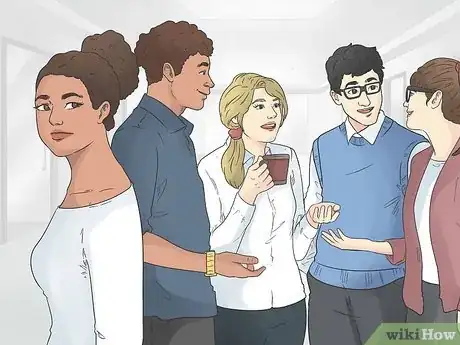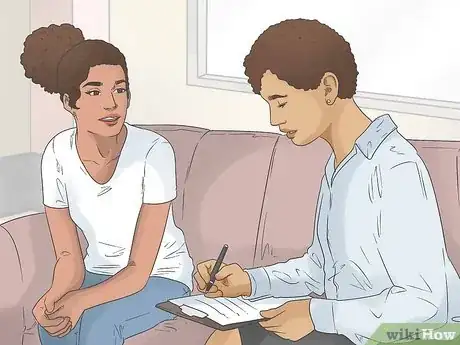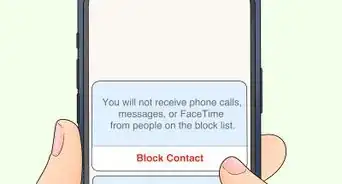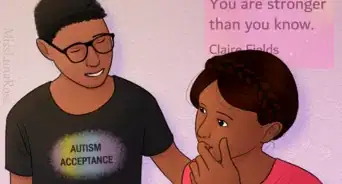This article was co-authored by William Gardner, PsyD. William Gardner, Psy.D. is a Clinical Psychologist in private practice located in San Francisco, CA’s financial district. With over 10 years of clinical experience, Dr. Gardner provides individually tailored psychotherapy for adults using cognitive behavioral techniques, to reduce symptoms and improve overall functioning. Dr. Gardner earned his PsyD from Stanford University in 2009, specializing in evidence-based practices. He then completed a post-doc fellowship at Kaiser Permanente.
There are 7 references cited in this article, which can be found at the bottom of the page.
This article has been viewed 17,407 times.
Adjusting to life after a spouse dies is filled with many endings and beginnings. You step out of the role of married partner into that of widow(er), bereaved. Many people expect the grieving period to be extremely hard, but they often are caught by surprise by how their social life becomes challenging as well. When your spouse dies you may notice your relationship with some friends growing distant while other friendships deepen. Effectively cope with changes in your friendships after the death of a spouse by calling out the awkwardness, redefining yourself as a social person, and learning to accept your new reality.
Steps
Taking Control
-
1Be frank about the elephant in the room. If visits from friends become fewer and fewer and phone calls suddenly stop, don’t count it as a loss and suffer in silence. Many who are adjusting to widowhood will simply let their relationships dissolve without even asking why. If you reach out to estranged friends, you may find that they really want to be there for you, but just don’t know how.[1]
- Call up your friends and candidly say, “Yes, I lost my spouse, but I didn’t expect to lose you, too. What’s going on with us? I miss you!”
-
2Explain what you need in terms of support. The fact of the matter is, unless you have a friend who has been in your shoes, most people don’t know how to help you. And, because they feel helpless about the situation, they grow distant. You can address this by clearly stating what you would like your friends to do for you as you grieve.[2]
- You might say, “Jessica, it would be great if we could continue our Thursday night movies together. I could use a distraction at least once a week.”
- Or, say something like “Carl, you are so good with kids. Do you mind taking the children to the park this Saturday?"
- You might ask one friend to text you an encouraging quote a few times each week, or ask another friend to be your go-to person for a laugh when you need it.
Advertisement -
3Refuse to get stuck in the widow(er) role. Do not allow people to make you feel guilty about how you choose to grieve. Many friends may treat you differently because you are not meeting their expectations of what a widow(er) should be.
- If a friend judges you for dating too soon, look at it as an opportunity to share your feelings of loss and loneliness and that you feel it is appropriate to move forward with your life.
- Explain by saying, “My husband has been gone for a year-and-a-half, and I know he would not want me to spend the rest of my life in mourning."
-
4Establish new ground rules for your friendships. It’s time to redefine who you are as a social person. As a widow(er), you no longer have to compromise on your choices based on your spouse’s preferences. Ask yourself: What do I want for my life? What kind of people do I want to be around?[3]
- Maybe you once didn’t have gatherings at home, but now you do.
- Don’t think you have to maintain the same equilibrium that existed before your spouse died. It's okay to not stay in contact with their friends.
Adjusting to Your New Self
-
1Don’t wait — initiate. Initiate social interaction to send the message that you want and need to engage with others. Bringing a sense of fulfillment back into your social life will depend on your level of commitment and effort. Yes, some friends may become distant. But, there are probably many other friends, family members, or coworkers who would love to have a chat, share a cup of coffee, or take a gym class with you.
- Challenge yourself to call up a different person every day. Ask people over for dinner or drinks a few times each month.
- If you are interested in having a fulfilling social life, you will have to build a habit of taking initiative.[4]
-
2Define your social life as a widow(er). You have the option of maintaining old friendships and making new ones. It’s entirely up to you. Make an effort to discover what it is you want from your social life by staying open to new experiences and new people. This period of life is a pivotal time in which you can reinvent who you are as person.
- Set a goal to go on an outing at least once a week.
- Join a support group for others who are going through the same experience.[5]
- Go to church or a meditation class for spiritual enrichment.
- Spend time with people who value you and see you as you truly are.
-
3Develop new hobbies. Embracing your new self also means exploring new passions and interests. You may feel deeply committed to participating in your regular book club. But, you should also challenge yourself to try out other hobbies, too. Doing so may help you add meaning to your life, introduce you to like-minded people, and help improve your mood.
- Start a volunteer commitment with a local community organization.
- Join a cooking or pottery class.
- Start a new exercise habit such as visiting the gym or going hiking.
-
4Consider dating, in time. Mourning the loss of a spouse is different for everyone. Don’t feel forced to rejoin the dating pool until you’re ready. In the same vein, you should not feel ashamed if you do desire companionship. Try some of these strategies to make the transition to dating easier.[6]
- Connect with people you knew way back when, such as high school or college buddies.
- Join an online dating site. And, be sure to follow safe practices.[7]
- Keep an open mind. Try not to compare every new person to your spouse.
- Save intimacy for when you’re ready. Be clear with your date about your need for time.
Accepting Reality
-
1Recognize that people may not know how to be there for you. As a widow(er), it can be easy to fall into a rut thinking that no one cares about you or wants to be around you. Even when some of your closest pals start acting strange or treating you differently, aim to have compassion for their situation.
- Imagine how you would feel in their shoes. Would you know exactly the right thing to say or do?
-
2Understand that some of your relationships may never be the same. As upsetting as it is, some friends won’t follow you into this new chapter of life. Some people, who only knew you as a happy-go-lucky person, may not be able to cope with your bereavement, so they stay away. Others, such as married friends, may not know how to include you in activities reserved for couples.[8]
- Find the confidence within yourself to not keep around friends who are toxic, judgmental, or unreliable.
- If you used to spend time with a lot of couples, they may not know if you still want to attend their events. Let your friends know if you do.
-
3Get professional help if you need it. Grieving a spouse can be a long, difficult process.[9] If you find yourself struggling to adjust to your new reality, or withdrawing from friends and loved ones, don’t hesitate to seek the services of a mental health therapist. Therapists with bereavement experience can help you learn to cope with widowhood and develop skills to effectively maintain and build friendships moving forward.[10]
Expert Q&A
-
QuestionHow do you help someone after the death of a spouse?
 William Gardner, PsyDWilliam Gardner, Psy.D. is a Clinical Psychologist in private practice located in San Francisco, CA’s financial district. With over 10 years of clinical experience, Dr. Gardner provides individually tailored psychotherapy for adults using cognitive behavioral techniques, to reduce symptoms and improve overall functioning. Dr. Gardner earned his PsyD from Stanford University in 2009, specializing in evidence-based practices. He then completed a post-doc fellowship at Kaiser Permanente.
William Gardner, PsyDWilliam Gardner, Psy.D. is a Clinical Psychologist in private practice located in San Francisco, CA’s financial district. With over 10 years of clinical experience, Dr. Gardner provides individually tailored psychotherapy for adults using cognitive behavioral techniques, to reduce symptoms and improve overall functioning. Dr. Gardner earned his PsyD from Stanford University in 2009, specializing in evidence-based practices. He then completed a post-doc fellowship at Kaiser Permanente.
Clinical Psychologist The death of a spouse is a serious loss and the person dealing with the loss of their partner is going to be going through a lot. Everyone goes through denial, anger, bargaining, depression, and acceptance when they're processing grief, but people experience these emotions differently. You can be there for someone after they've lost their spouse and offer to help them any way you can, but you aren't going to be able to process those feelings for them.
The death of a spouse is a serious loss and the person dealing with the loss of their partner is going to be going through a lot. Everyone goes through denial, anger, bargaining, depression, and acceptance when they're processing grief, but people experience these emotions differently. You can be there for someone after they've lost their spouse and offer to help them any way you can, but you aren't going to be able to process those feelings for them.
References
- ↑ http://www.opentohope.com/maintaining-friendships-after-a-spouse-loss/
- ↑ http://www.huffingtonpost.com/megan-devine/death-and-dying_b_4329830.html
- ↑ http://www.grandparents.com/family-and-relationships/dating-and-marriage-and-sex/dating-after-death-of-spouse
- ↑ http://www.opentohope.com/maintaining-friendships-after-a-spouse-loss/
- ↑ https://www.nia.nih.gov/health/publication/mourning-death-spouse
- ↑ http://www.grandparents.com/family-and-relationships/dating-and-marriage-and-sex/dating-after-death-of-spouse
- ↑ https://www.psychologytoday.com/blog/the-love-doctor/201006/nine-key-tips-dating-online-safely-and-successfully
- ↑ http://www.huffingtonpost.ca/ann-bacciaglia/widow-grief-friendship-support_b_2194640.html
- ↑ William Gardner, PsyD. Clinical Psychologist. Expert Interview. 25 July 2019.
